Flashback: The chilling news Detroiters read on the day after Pearl Harbor
- Oops!Something went wrong.Please try again later.
The following is a sampling of the page-one reports of the start of World War II in the Free Press on Dec. 8, 1941.
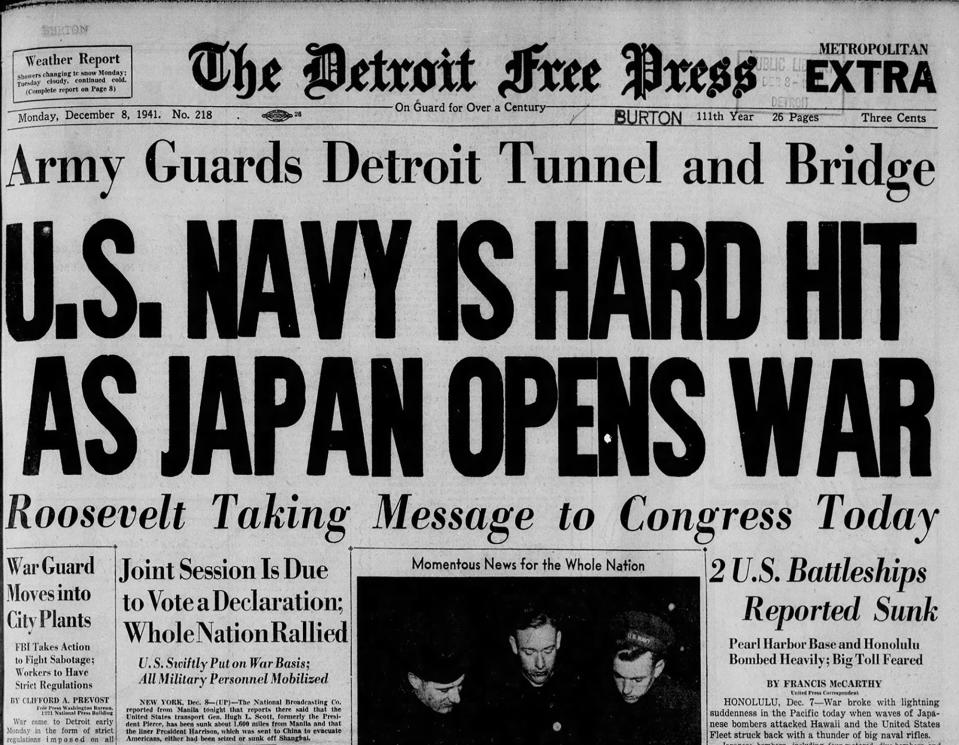
HONOLULU, Dec. 7 ― War broke with lightning suddenness in the Pacific today when waves of Japanese bombers attacked Hawaii and the United States Fleet struck back with a thunder of big naval rifles.
Japanese bombers, including four-motored dive-bombers and torpedo-carrying planes, blasted at Pearl Harbor, the great United States naval base, the city of Honolulu and several outlying American military bases on the island of Oahu. There were many casualties, but the number was officially unstated. An NBC observer reported tonight from Honolulu that 350 men had been killed in a direct bomb hit at Hickam Field Army bomber base there.
He said that three ships, including the USS Oklahoma, a battleship, had been attacked and set afire in Pearl Harbor. The base was said to have been heavily damaged.
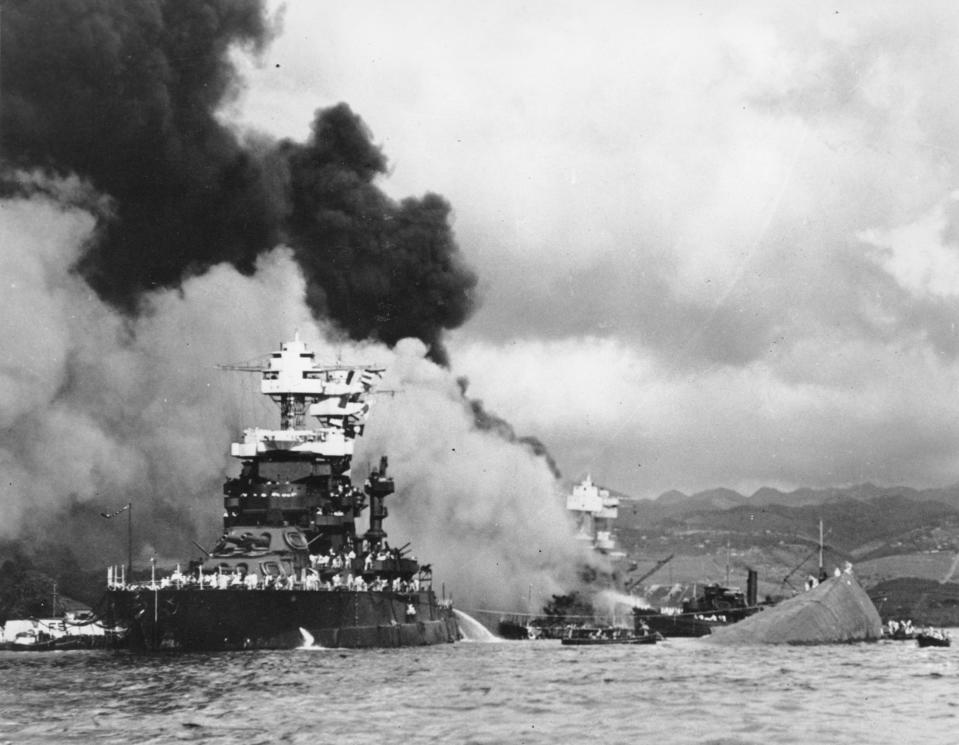
Japan's Domci news agency said in Shanghai that the Oklahoma had been sunk. Later, Berlin radio broadcast a Tokyo announcement that the United States battleship West Virginia also had been sent to the bottom in an engagement between the Japanese and the United States and British navies.
The Berlin broadcast said that the battle was still going on and that altogether three United States ships were hit. The third ship was not named.
Several attacking planes, believed to have advanced on Pearl Harbor from the south, were shot down, the NBC observer said. In Washington, reliable sources said that anti-aircraft fire and naval action had bagged six Japanese planes and four submarines in the Hawaiian action.
Parachutists appeared off Harbor Point, five miles from the center of Honolulu. It was assumed they were suicide squadrons of saboteurs.
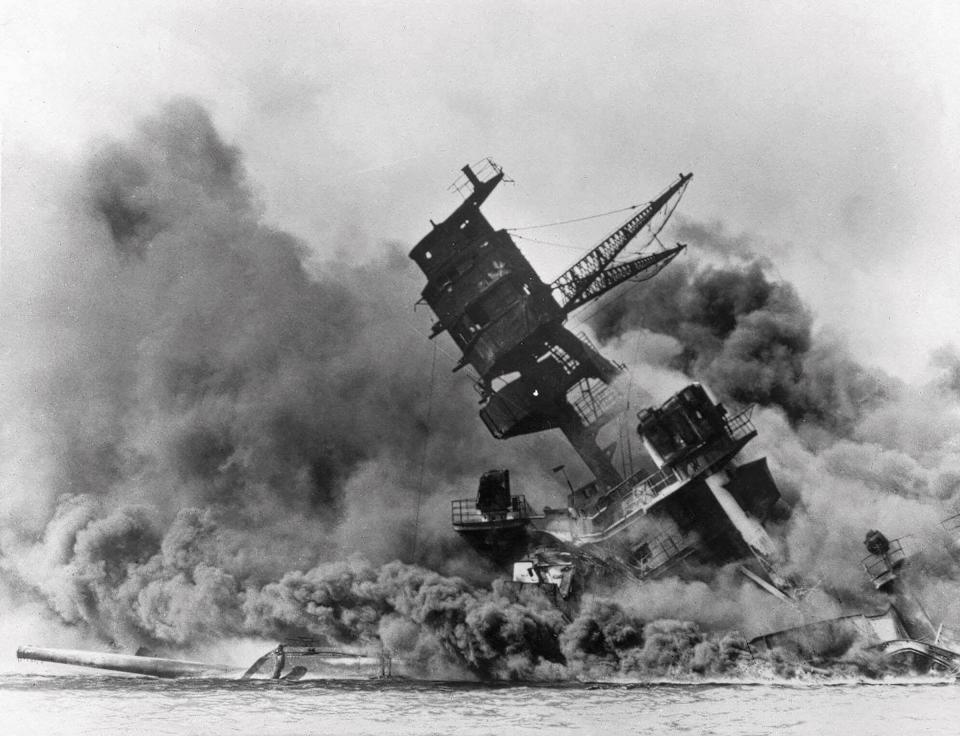
Then the United States Fleet steamed out of Pearl Harbor. The sound of gunfire was heard off Oahu and gunflashes were seen from the shore. It was believed that most of the Japanese bombers operated from aircraft carriers, which might have been intercepted.
A Japanese aircraft carrier was sunk off Honolulu today, according to a broadcast by Panama radio heard in New York by NBC. At the same time, a Reuters dispatch from Shanghai quoted an unconfirmed report circulated there saying that United States-owned Wake Island had been occupied by the Japanese.
In Washington, President Roosevelt reacts
The Nation's capital was partly blacked out early today.
After President Franklin Roosevelt had conferred all last evening with his war and naval chieftains, his cabinet and congressional leaders, it was announced just before midnight that the president would go before Congress at 12:30 p.m. today with a special message.
This was expected to be a request for a United States’ declaration of war on Japan, and there was no question in any quarter but what it would be promptly voted.
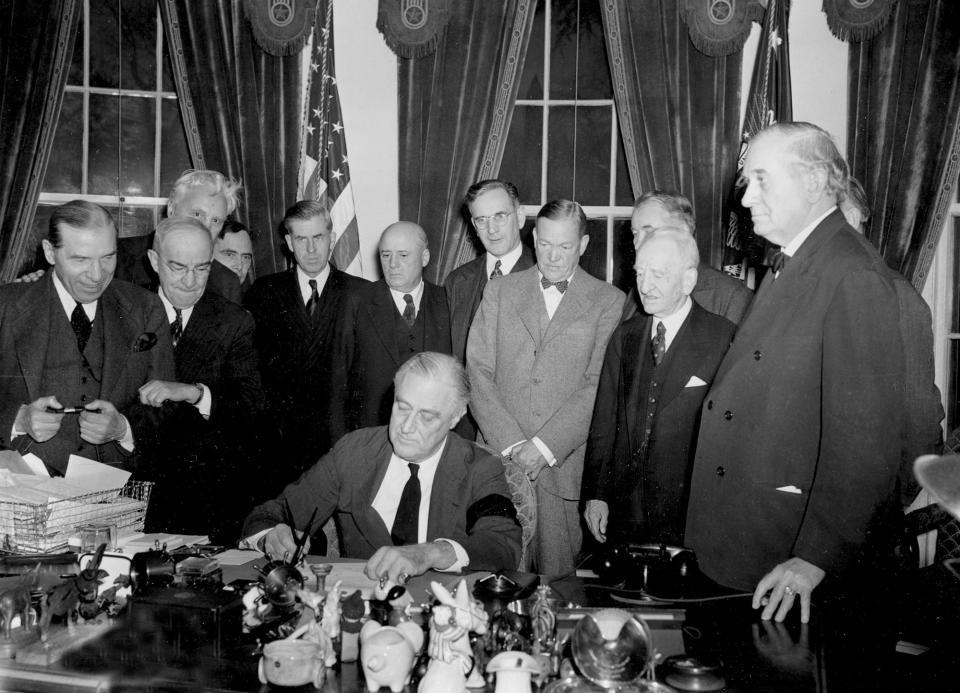
Clifford A. Prevost, Free Press Washington correspondent, predicted that "sunset today will probably see this country openly at war not only with Japan but with Germany and Italy as well."
The White House announced during President Roosevelt's conference with legislative leaders and members of the cabinet that he had received word from Gen. Douglas MacArthur that "enemy planes were over Central Luzon in the Philippines about 8 p. m., Eastern Standard Time; that a bombing attack has been made on Davao at the southern end of the southern island of Mindanoa, and that another attack has been made on Camp John Hayes at Baguio in the northern mountains of Luzon. So far no essential damage had been reported."
Free Press Flashback: Joe Louis fought like a champ for the U.S. Army during World War II
Borders close to Japanese
Treasury Secretary Henry Morgenthau Jr. tonight closed the nation’s borders to Japanese nationals and imposed a strict ban on their financial transactions.
Japanese assets in this country have been unofficially estimated at $130 million. The nation’s major airlines issued orders for their planes not to transport any Japanese travelers.
Morgenthau also invoked tonight a portion of the Trading with the Enemy Act, which bars transportation or communication with Japan or her allies, no matter how indirectly.
The Civil Aeronautics Authority issued orders tonight grounding all private airplanes in the United States and its possessions, except commercial airliners.
The Federal Communications Commission tonight prohibited all amateur radio operation in the United States and its possessions, except for stations specifically authorized by federal, state and municipal authorities in connection with emergency matters.
Anticipating sabotage attempts, Secretary of War Henry L. Stimson Sunday night called upon all arms plants to take extra precautions immediately. With the declaration of war Monday, every worker will be closely checked in accordance with FBI regulations.
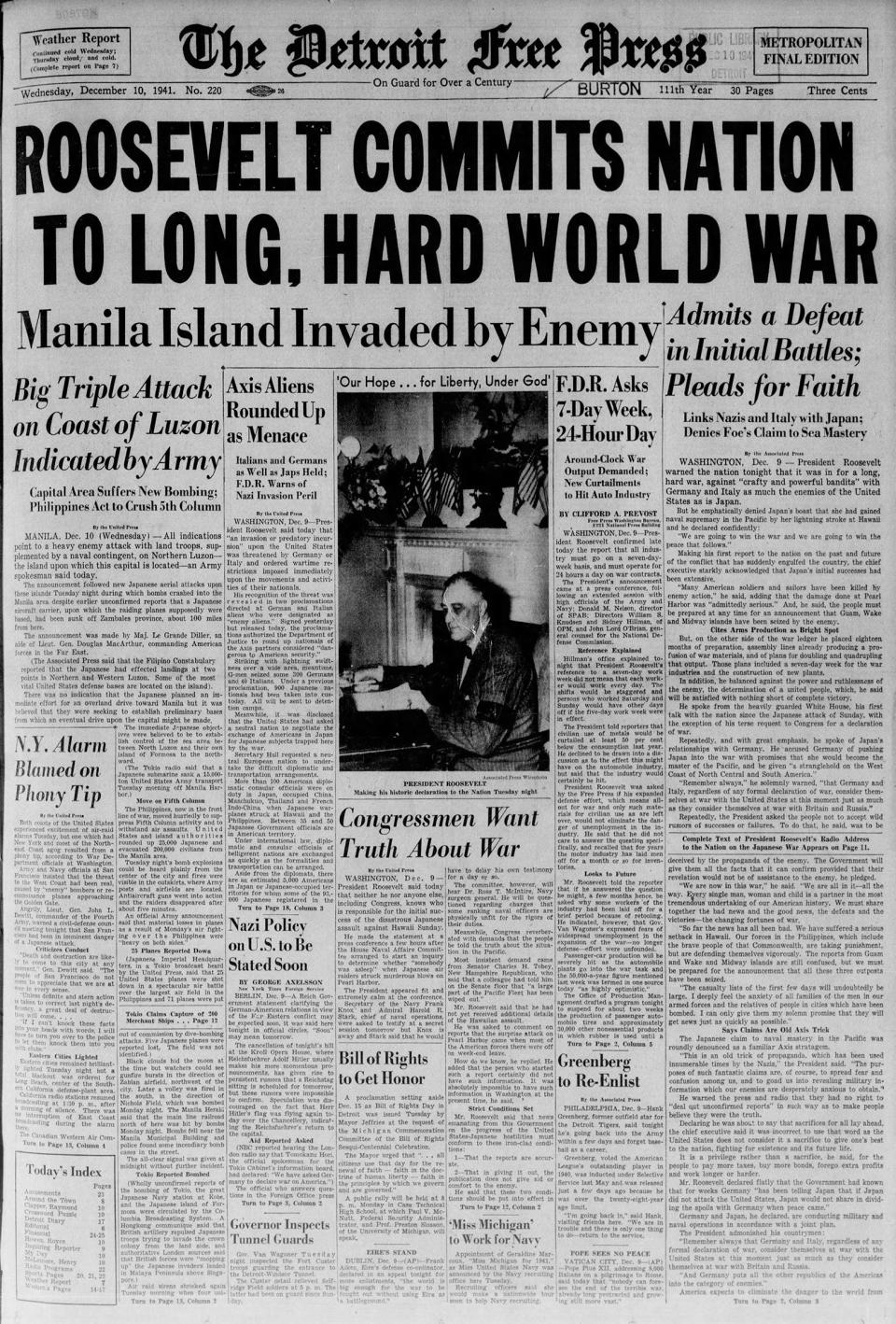
In Detroit, John Bugas, local FBI director, will be charged with the protection of the greatest concentration of defense industries in the country.
The order to “pick up” Japanese nationals for internment will probably follow Monday’s session of Congress when, it is expected, President Roosevelt’s message will be delivered and war formally declared.
The Department of Justice has a complete file of all Japanese here and thousands of arrests, particularly in the Pacific Coast area, are in the offing.
Nearly 93,000 Japanese registered under the Alien Registration Law last year. About 41,000 are in Hawaii, a few in Alaska, and the remainder in the continental U.S.
Army and FBI take control of Detroit
The Army and the Federal Bureau of Investigation took over Detroit Sunday to insure protection of her vast defense industry.
The FBI has a complete plan to prevent sabotage. Its agents will work in close co-operation with plant and local police and no plant will be left unguarded. It is believed that within a few days all workmen will be required to carry identification cards, similar to those now necessary to gain admittance to Army and War Department buildings here.
Four truckloads of Selfridge Field troops arrived in the city at a late hour to set up guard at the Ambassador Bridge and the Detroit-Windsor Tunnel. Similar precautions were planned for the Michigan Central Railroad tunnel under the river and the vital car ferries.
The Detroit Police, meanwhile, broadcast a notice requesting all scout cars, cruisers and patrolmen to closely watch all radio stations and radio transmitter areas.
The FBI’s Bugas refused to comment Sunday night on the specific plans of his office for the prevention of sabotage and the treatment of local Japanese.
“We are maintaining the utmost vigilance,” Bugas said. “We are in contact with every vital organization or situation in our area to keep the possibility of any dangerous activity down to an absolute minimum.
“Every man on our staff is ready for any and every emergency that might arise in our area.”
Several of the smaller defense plants in the Detroit area were put under police guard Sunday night by orders of Deputy Police Commissioner Fred W. Jurgens.
According to the 1930 U.S. Census, there were just 176 Japanese in the entire state, 119 of whom lived in Wayne County.
This article originally appeared on Detroit Free Press: Pearl Harbor anniversary: News Detroiters read day after start of WWII

